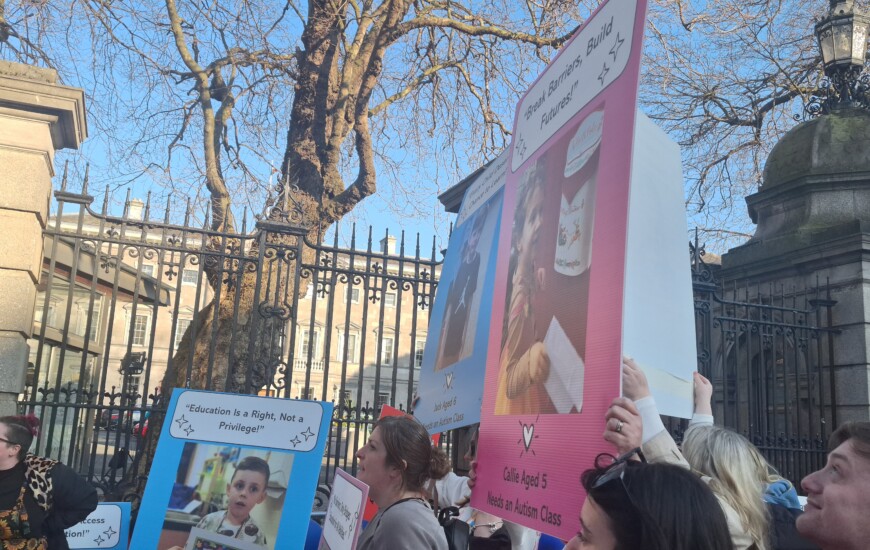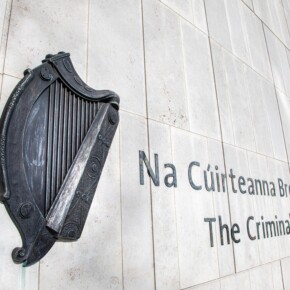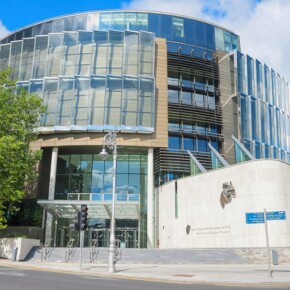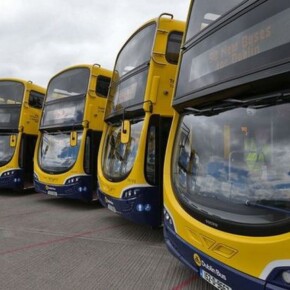Dublin’s special education crisis: At the Dáil gates
Dublin People 09 Apr 2025
The campaign to secure school places for children with additional educational needs reached the gates of the Dáil.
After a previous sleepout at the Department of Education at the end of February, there were hopes that the message was getting across to elected reps; parents were mad as hell, and they weren’t going to take it anymore.
On April 2, parents from Donegal, Cork and Dublin gathered outside the Dáil to send the government a message; their campaign to secure school places for their children wasn’t letting up anytime soon.
Over 100 parents slept outside the Dáil in a bid to put pressure on the government.
Since we started the campaign in February, there have been rumblings from the government that they are looking to take the issue more seriously than their predecessors.
One parent who travelled from Cork, Kenneth, told the crowd about his seven-year-old son Harry.
Kenneth said that he has “exhausted all of his options” and despite his story being known to Taoiseach Micheál Martin and Minister for Education Helen McEntee, the weariness in Kenneth’s Cork accent was palpable.
“I’m up here today because I want to improve Harry’s life,” he told the crowd outside the Dáil.
“I have to fight with every breath for him, and I have to keep going. We’re under so much pressure. This is another battle we don’t need, but I know we will win it.”
He told the crowd that therapies are “not a luxury, they are a necessity.”
Another parent who addressed the crowd, Nicole, caught wind of the campaign through social media in January and addressed a home truth of being the parent of a child without a school place; it is mentally straining and taxing.
“That’s not something they tell you when your children is diagnosed,” she told the crowd.
“You develop mental health problems when your child is diagnosed with additional education needs. Families suffer so bad.”
She said, “my life has been taken up by trying to secure a place for my son,” and added she is already dreading the upcoming school year and the bevy of applications.
In recent weeks, Minister McEntee and Minister of State for Special Education Michael Moynihan have stated that 300 new additional special school places and 400 new special classes are going to come on track within the next academic year, bringing the total to 2,700 nationwide.
This incremental approach has frustrated parents who were protesting outside the Dail.
A common refrain over the course of this series has been that the Irish economy has been running at a surplus in recent years and that fixing the special education crisis is not on top of the government’s list of priorities.
Another cause of frustration among parents is the system in which children are given their diagnosis.
One parent, Susan from Tallaght, explained the cruel Catch-22 within the Irish system.
For a child to be deemed eligible for a special class, they need an up-to-date diagnosis.
In Susan’s case, her son was on a three-year waiting list to be seen publicly, but the school she was applying to required a diagnosis from within the last two years.
Examples like this are clear examples of how the issue facing Irish parents is systemic and is not merely a matter of throwing money at the issue and hoping it goes away.
Students with additional needs fall under a wide umbrella, such as autism, ADHD, dyslexia, dyspraxia, and sensory issues, and the Dáil heard in late March about the problems facing teachers with dyslexia alone.
Figures cited by Minister of State John Cummins told the Dáil in late March that the Department of Education will spend €2.9 billion on special education in 2025, which is one-quarter of the entire Department of Education budget.
“More than 28,000 children are being supported in special schools and classes, and the number of special classes has increased by 100% since 2020 through investment by the previous government, which will continue under this government.”
Funding for special needs education has gone up, but the number of teachers with adequate skills to teach students with dyslexia has not.
A 2021 survey carried out by the Dyslexia Association of Ireland asked over 400 primary and secondary level teachers across Ireland about what dyslexia-specific training they received before entering the workforce.
In the survey, only 18% of teachers said they had received specific training on identifying dyslexia, and 19% had received training on how to support students with dyslexia.
3% of teachers polled felt that the level of pre-service training they received on dyslexia adequately prepared them for the classroom.
With autism spectrum disorder, it is estimated that over 160,000 people in Ireland have received a lifetime diagnosis, and that is before the waiting list is cleared; the higher figure is likely to be over 200,000.
March 2025 statistics from the Department of Education found that one in 20 children in the Irish education system are on the autism spectrum, a threefold increase compared to a decade ago.
To accommodate this, the Department of Education estimates that at least 400 new special classes and 200 new special school places will be required every year for the next three years to keep pace with demand.
Among the parents protesting outside the Dáil, there was scepticism about whether that figure would be met, considering the current problems with the Irish education system.
“There’s just not enough classes for autistic students; there are so many balls dropped by the government, and it’s clear the different departments are not speaking to each other,” Susan said.
“Each school has their own criteria for applications; some accept applications from September and some only accept applications from January so as a parent you have to keep all these plates spinning,” she explained.
Susan pointed to a trial in Dublin 15 which would allow parents to send a standardised application to all schools in the area, and there are hopes that a similar system could be rolled out across Dublin and, eventually, nationwide.
The Dublin 15 Common Application Trial will allow parents to streamline their application process.
Helena Power, principal of the Powerstown Educate Together National School, has reported that parents have been forced to apply to over 25 schools across Dublin, Kildare and Meath to no avail.
She played a part in creating the trial, in the hopes of making the lives of parents that bit easier.
Trench said, “it is important to recognise that this trial will not fully resolve the issue of supply versus demand when it comes to autism classes,” noting “not all who apply will secure a place.”
The virtue that it falls on educators to do what the government fail to do feeds into the mood of discontent outside Leinster House.
As one placard read outside Leinster House, a photo of a five-year-old child has the caption “I may be non-verbal, but my mammy isn’t!”
With the campaign to secure school places literally standing at the gate, time will tell how long the government can keep the issue on the long finger.











